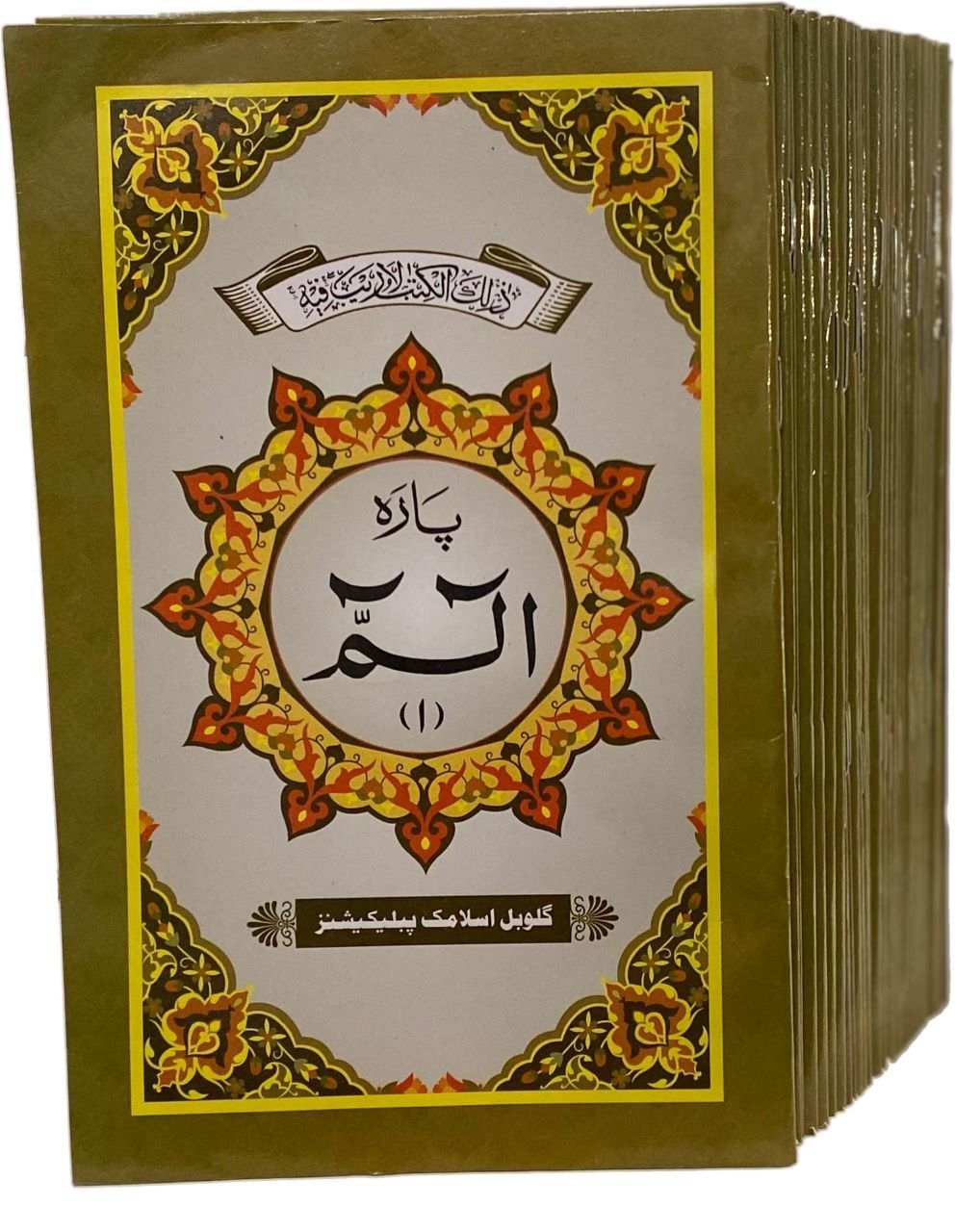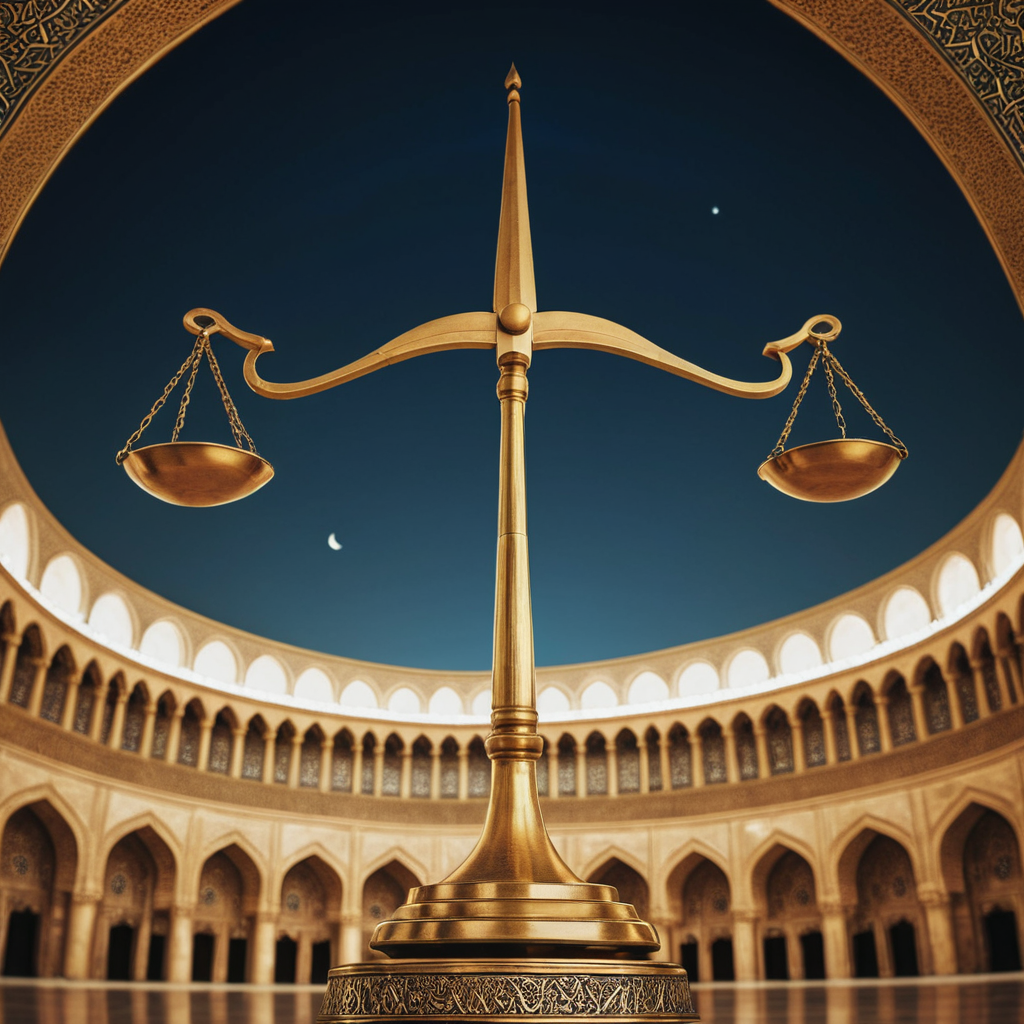
Explore profound Quranic Verses on Justice that highlight justice as a core principle in Islam. These verses emphasize fairness, equity, and moral integrity, guiding believers toward righteous actions and societal harmony. Understand how justice, as outlined in the Quran, serves as a foundation for building a just and balanced world.
Introduction
Justice is a cornerstone of Islamic teachings, emphasized extensively throughout the Quran. This profound concept serves as a reminder of Allah’s (SWT) guidance on upholding fairness, maintaining balance, and fostering harmony in society. The Quran offers numerous verses that speak to the importance of justice, urging Muslims to pursue truth and integrity, whether in personal actions or in their contributions to a just society. By examining Quranic Verses on Justice, believers gain insight into how to lead a life of righteousness that aligns with divine principles and upholds the rights of all.
1. The Importance of Justice in Islam
In Islam, justice transcends simple fairness; it is a moral imperative and a divine command. The Arabic word for justice, “Adl,” implies a balanced approach, where actions are fair, ethical, and void of any bias or partiality. Allah (SWT) enjoins believers to act justly not only as a personal virtue but also as a societal responsibility, shaping a world where oppression, discrimination, and exploitation have no place.
Justice in Islam holds such high value that Allah warns against any deviation from it, associating it closely with piety and righteousness. Upholding justice is also seen as a form of worship, a path that brings a believer closer to Allah and exemplifies their devotion to His will.

2. Quranic Verses About Justice: Key Teachings and Reflections
The Quran provides Quranic Verses on Justice guidance on the concept of justice, emphasizing the need to act impartially and ethically, even in difficult situations. Here are some powerful Quranic Verses on Justice that highlight its significance.
Verse 4:135 -Quranic Verses on Justice, Even Against Oneself
Arabic:
“يَا أَيُّهَا الَّذِينَ آمَنُوا كُونُوا قَوَّامِينَ بِالْقِسْطِ شُهَدَاءَ لِلَّهِ وَلَوْ عَلَى أَنفُسِكُمْ أَوِ الْوَالِدَيْنِ وَالْأَقْرَبِينَ ۚ إِن يَكُنْ غَنِيًّا أَوْ فَقِيرًا فَاللَّهُ أَوْلَىٰ بِهِمَا ۖ فَلَا تَتَّبِعُوا الْهَوَىٰ أَنْ تَعْدِلُوا ۚ وَإِن تَلْوُوا أَوْ تُعْرِضُوا فَإِنَّ اللَّهَ كَانَ بِمَا تَعْمَلُونَ خَبِيرًا”
Translation: “O you who have believed, be persistently standing firm in justice, witnesses for Allah, even if it be against yourselves or parents and relatives. Whether one is rich or poor, Allah is more worthy of both. So follow not personal inclination, lest you not be just. And if you distort [your testimony] or refuse [to give it], then indeed Allah is ever, with what you do, Acquainted.”
(Quran, 4:135)
This verse reminds believers of the importance of standing up for justice, even when it conflicts with personal interests or family ties. Justice in Islam is defined as an unwavering commitment to fairness, irrespective of wealth, status, or personal relationships. Allah (SWT) calls upon Muslims to avoid biases and to uphold truth with sincerity, knowing that He is aware of all that they do.
Verse 5:8 – Quranic Verses on Justice Beyond Personal Feelings
Arabic:
“يَا أَيُّهَا الَّذِينَ آمَنُوا كُونُوا قَوَّامِينَ لِلَّهِ شُهَدَاءَ بِالْقِسْطِ وَلَا يَجْرِمَنَّكُمْ شَنَآنُ قَوْمٍ عَلَىٰ أَلَّا تَعْدِلُوا ۚ اعْدِلُوا هُوَ أَقْرَبُ لِلتَّقْوَىٰ ۖ وَاتَّقُوا اللَّهَ ۚ إِنَّ اللَّهَ خَبِيرٌ بِمَا تَعْمَلُونَ”
Translation: “O you who have believed, be persistently standing firm for Allah, witnesses in justice, and do not let the hatred of a people prevent you from being just. Be just; that is nearer to righteousness. And fear Allah; indeed, Allah is Acquainted with what you do.”
(Quran, 5:8)
This verse encourages Muslims to pursue justice even when dealing with adversaries. Justice should remain unclouded by personal emotions or prejudices, as impartiality brings one closer to righteousness (taqwa). This reminder from the Quran illustrates how essential justice is in Islamic ethics and how it leads to spiritual purity.
Verse 16:90 – Justice as a Command of Allah
Arabic:
“إِنَّ اللَّهَ يَأْمُرُ بِالْعَدْلِ وَالْإِحْسَانِ وَإِيتَاءِ ذِي الْقُرْبَىٰ وَيَنْهَىٰ عَنِ الْفَحْشَاءِ وَالْمُنْكَرِ وَالْبَغْيِ ۚ يَعِظُكُمْ لَعَلَّكُمْ تَذَكَّرُونَ”
Translation: “Indeed, Allah commands justice, good conduct, and giving to relatives and forbids immorality, bad conduct, and oppression. He admonishes you that perhaps you will be reminded.”
(Quran, 16:90)
One of the most often recited verses in Friday sermons, this ayah encapsulates the core Islamic values of justice, charity, and kindness to family, while also prohibiting harmful and oppressive actions. Through this command, Allah (SWT) provides a clear framework for believers to follow, one rooted in both justice and mercy.
Quranic Verses About Justice: The Key to Social Harmony
Justice is not only a divine command but a means to achieve peace and harmony in society. When justice is practiced, communities experience unity and a collective sense of security. The Quran assures that maintaining justice leads individuals closer to righteousness.
Quranic Verse (Surah Al-Mumtahina, 60:8):
Arabic: لَا يَنْهَاكُمُ اللَّهُ عَنِ الَّذِينَ لَمْ يُقَاتِلُوكُمْ فِي الدِّينِ وَلَمْ يُخْرِجُوكُم مِّن دِيَارِكُمْ أَن تَبَرُّوهُمْ وَتُقْسِطُوا إِلَيْهِمْ…
English: “Allah does not forbid you from those who do not fight you because of religion and do not expel you from your homes – from being righteous toward them and acting justly toward them…” (60:8)
This verse encourages peaceful coexistence and fair treatment of others, even those from different backgrounds, emphasizing the universal importance of justice.
Quranic Verses About Justice in Economic Matters
Islam places great emphasis on financial integrity. In every transaction, Muslims are urged to be honest, fair, and transparent, as wealth should be earned and distributed lawfully and ethically.
Quranic Verses on Justice (Surah Al-Baqarah, 2:282):
Arabic: يَا أَيُّهَا الَّذِينَ آمَنُوا إِذَا تَدَايَنتُم بِدَيْنٍ إِلَىٰ أَجَلٍ مُّسَمًّى فَاكْتُبُوهُ…
English: “O you who have believed, when you contract a debt for a specified term, write it down…” (2:282)
This is the longest verse in the Quran, emphasizing the importance of clear agreements in financial dealings. By writing down transactions, Islam promotes transparency and protects the rights of all parties involved, ensuring that justice is upheld.

3. The Prophet Muhammad’s (PBUH) Example of Justice
The life of Prophet Muhammad (PBUH) provides practical examples of Quranic justice. He was known for his fair dealings, even when his decisions could lead to personal or political risks. His commitment to justice, as seen in various incidents, became a model for the ummah (Muslim community) to emulate.
For example, in a case where a woman from a noble family committed theft, some suggested sparing her due to her status. However, the Prophet (PBUH) famously declared, “If my own daughter Fatimah were to steal, I would cut off her hand.” His steadfast adherence to justice over favoritism exemplifies the true meaning of justice in Islam.
The Quranic Verses on Justice form the basis of Sharia, or Islamic law, which strives to ensure fairness in both personal and public matters. Islamic law covers areas such as contracts, family law, criminal justice, and financial dealings, all governed by principles of justice and fairness.
Quranic Verses on Justice (Surah An-Nisa, 4:58):
Arabic: إِنَّ اللَّهَ يَأْمُرُكُمْ أَن تُؤَدُّوا الْأَمَانَاتِ إِلَىٰ أَهْلِهَا وَإِذَا حَكَمْتُم بَيْنَ النَّاسِ أَن تَحْكُمُوا بِالْعَدْلِ…
English: “Indeed, Allah commands you to render trusts to whom they are due and when you judge between people, to judge with justice…” (4:58)
This verse directly instructs Muslims to judge fairly and fulfill their responsibilities with honesty. Justice in Sharia emphasizes fair treatment of all individuals, including the accused, victims, and the community at large.
4. Justice in Society and Family as Taught by the Quran
The Quran calls for justice not only in personal matters but also within families and society at large. In Quranic verses about justice, we see clear instructions on being just in family relationships, friendships, and business dealings.
- Justice in Family and Relations: The Quran emphasizes fairness within families, including respecting the rights of spouses, children, and extended family members. Avoiding favoritism and maintaining balance within family dynamics reflects a true commitment to Allah’s guidance.
- Justice in Business and Trade: Fair dealings are another critical aspect of Islamic justice. The Quran repeatedly advises honesty in trade, fair weights and measures, and condemns fraud and deceit. Upholding these values cultivates trust and ensures that business is conducted with integrity.
- Competitor Keywords: verses about justice, Quran ayat about justice, justice in Quran.
5. Accountability and Divine Justice: Only Allah Can Judge
In Islam, while humans strive to uphold justice, ultimate judgment belongs to Allah alone. Quranic verses about justice remind believers that Allah is aware of all actions, and no injustice will go unaccounted for.
Arabic:
“وَمَا اللَّهُ بِغَافِلٍ عَمَّا تَعْمَلُونَ”
Translation: “And Allah is not unaware of what you do.”
(Quran, 2:85)
This verse assures believers that every action, no matter how small, is observed by Allah. This knowledge encourages Muslims to act ethically and remember that they will be answerable for their conduct on the Day of Judgment.
6. How to Apply Quranic Verses on Justice in Daily Life
Justice in Islam is not merely theoretical but a practical guide for daily interactions. Here are some actionable ways to implement Quranic Verses on Justice:
- Personal Reflection and Fairness: Regularly assessing one’s actions and motivations helps avoid bias and self-interest.
- Being Just in Conflicts: Maintaining honesty and fairness in disagreements or conflicts, even with loved ones, is essential.
- Supporting Fair Policies in Society: Muslims are encouraged to advocate for just policies that benefit society, from social justice to economic fairness.
- Competitor Keywords: Quran on justice, Islam justice.
Conclusion
The Quran’s emphasis on justice forms the bedrock of an ethical society and guides Muslims to live with integrity and fairness. Through its verses, the Quran reveals justice as both a personal duty and a social commitment, reinforcing that the path to Allah’s pleasure is rooted in the fair and equitable treatment of others. As Muslims strive to emulate these teachings, they fulfill a divine obligation that brings harmony, peace, and righteousness into their lives and the world around them.
 Colors
Colors 
 Support
Support 







